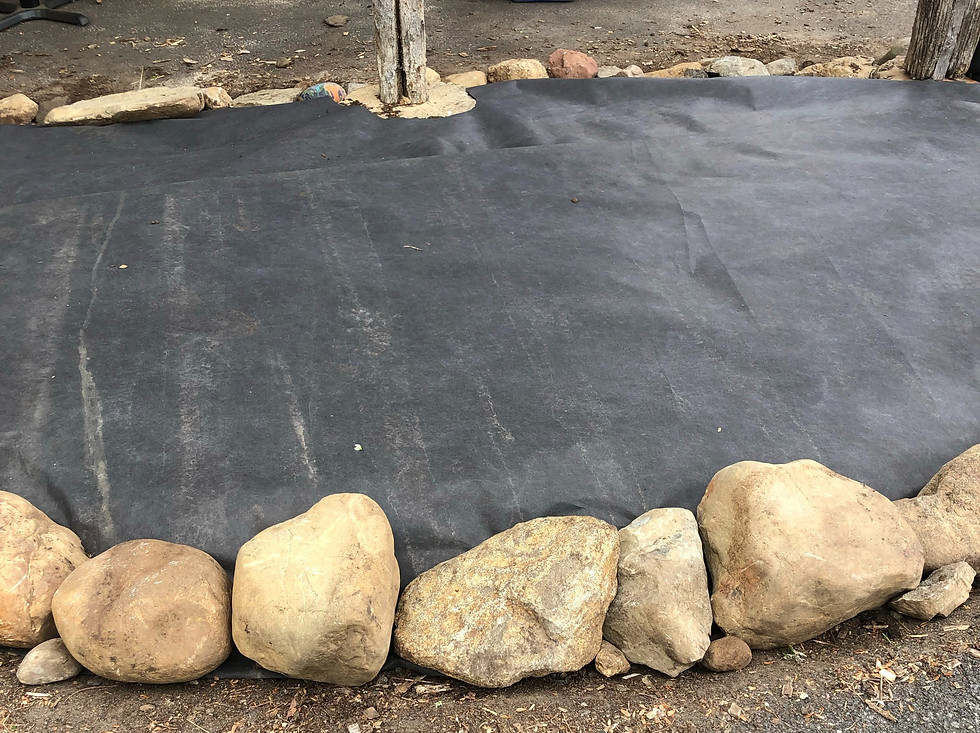Step 1: Find a Location
For any garden to thrive it needs basic requirements which includes: amount of sunlight, water/humidity, temperature, and soil. Make sure that the location you chose is fitting to the plants you plan on planting. Finding this information about plants is usually provided on seed packets. Another way to find specific information is through the internet and books about herbs. Also, it is helpful to map out where you want the plants to go.
_JPG.jpg)
_JPG.jpg)
_edited.jpg)
How To Plant Your Own Herb Garden

%20pruned_edited.jpg)

Step 2: Prep Land
Clean up the area where you wish to plant your garden. Remove any decorations, sticks, large rocks, or old mulch. Next, rake up the soil to loosen the ground. Then, till the fresh compost into the soil; you can do this with a gardening fork. (Note: Most towns provide free compost for town residents)
Facts: Compost is made up of decaying plants, like leaves and grass clippings, and vegetables. The compost gives plants the nutrients they need to survive through the plant's roots.


Step 4: Add Plants
It's time to add the plants! First, mark out where each plant will be. Second, use scissors or a razor blade to cut the landscaping fabric. There are two ways to do this:
- Cut an X into the fabric, big enough for the plant to fit, and fold the
triangles of the X under the fabric. Do this for each plant individually.
or
- Cut out a circle from the fabric that is big enough to fit the plant. Do this
for each plant individually.
Then, use a gardening shovel to dig a hole and put the plant in the ground. (Note: Occasionally, you need to loosen the roots of the plants before placing it inside the ground. To do this, move the roots with your fingers; it is alright if you break some roots during this process. This will help the plant's roots to spread out and absorb more nutrients)
Cover the plant's roots with the soil that was in the hole. In addition, push the plant and soil into the ground to ensure it is secure and doesn't come out.
_JPG.jpg)

_JPG.jpg)
Note: Adding mulch on top of the landscaping fabric will help the soil retain moisture, and prevent weeds from growing.
Let Me Know If This Page Helped You Through This Survey

_JPG.jpg)
_JPG.jpg)
.jpg)
.jpg)
Perennial Garden in different seasons
Fall
Early Winter
.jpg)
late
Winter/ Early Spring
<- you can see the yarrow growing back already!
.jpg)
.jpg)
Spring
.jpg)
.jpg)
.jpg)
%20pruned_edited.jpg)
%20pruned.jpg)
Summer

Created by: Victoria Foxton, Girl Scout from 2011-2023
Address
Rockland Farm Alliance &
Cropsey Community Farm
220 South Little Tor Road
New City, NY 10956
Follow
This website was published in 2023
©2023 by PWR.
Created on Editor X.

Created by: Victoria Foxton, Girl Scout from 2011-2023
Promote Local Farming
Follow
This website was published in 2023
©2023 by PWR.
Created on Editor X.
Address
Rockland Farm Alliance &
Cropsey Community Farm
220 South Little Tor Road
New City, NY 10956
Step 3: Add the Landscaping Fabric (optional)
Cut the landscaping fabric to put over the soil/compost mix. You can use rocks to hold down the fabric while you continue to place more pieces of fabric down.
There are two ways to do this:
- Roll out the fabric over the garden area and cut it to desired length
or
- Measure area and then cut the fabric to desired length
Then, use staples to hold the fabric in place.
Facts: The landscaping fabric prevents weeds from growing in the garden.

